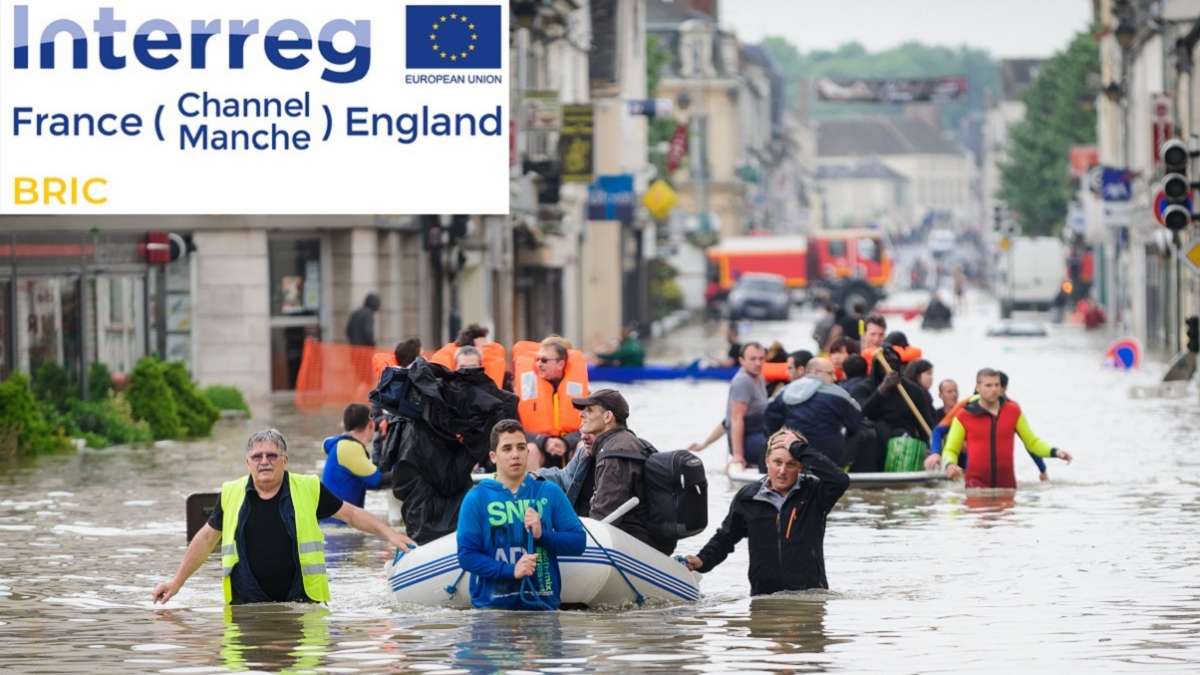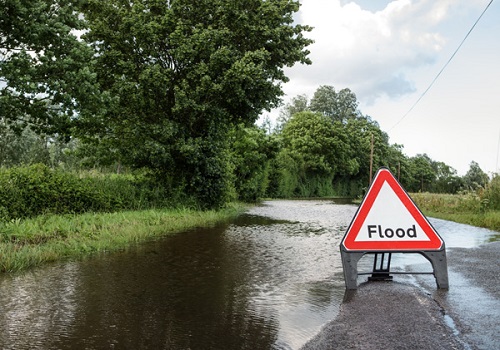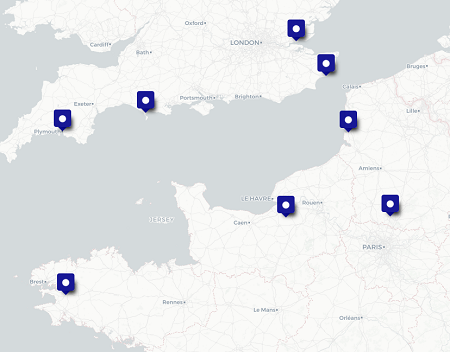
 The two-year BRIC project is designed to create networks between individuals, non-profit community organisations and public authorities in the UK and France to find better ways to prevent flooding.
The two-year BRIC project is designed to create networks between individuals, non-profit community organisations and public authorities in the UK and France to find better ways to prevent flooding.
Facilitating the resilience of vulnerable populations
Socio-economic disadvantage is a huge barrier to individual and community efforts to mitigate or recover from flooding.
 This project targets neighbourhoods at risk of flooding and with a higher than average proportion of vulnerable populations (particularly the elderly and those who are distant from the labour market). As vulnerable populations are the most exposed and their vulnerability to flooding is increasing due to the impact of climate change, increasing the resilience of these populations becomes a major challenge.
This project targets neighbourhoods at risk of flooding and with a higher than average proportion of vulnerable populations (particularly the elderly and those who are distant from the labour market). As vulnerable populations are the most exposed and their vulnerability to flooding is increasing due to the impact of climate change, increasing the resilience of these populations becomes a major challenge.
Reflecting a dual entry point on social cohesion and risk management, the BRIC project brings together policy tools to improve flood risk management and social innovation to improve the well-being of vulnerable groups.
Individual actions are necessary, but collective action is essential and this is what BRIC is focusing on. The project thus aims to reduce the vulnerability of disadvantaged populations by creating local and sustainable cooperation networks and empowering people, and by improving risk perception.
BRIC aims to change attitudes in flood-disadvantaged communities, a new framework for social innovation that changes perceptions and leads to better flood preparedness.
Pilot projects at four sites in France
 The €3.4 million programme, which includes €2.36 million from the European Regional Development Fund, will also see pilot projects tested in the south of the UK, Plymouth, Dorset, Essex, Kent, in addition to four pilot sites in northern France.
The €3.4 million programme, which includes €2.36 million from the European Regional Development Fund, will also see pilot projects tested in the south of the UK, Plymouth, Dorset, Essex, Kent, in addition to four pilot sites in northern France.
Carolyn Reid, Programme Manager, Interreg France (Channel) England, said: "The damage caused by flooding has a huge cost and social impact on communities in the Channel area. By funding this project, we are seeking to support new approaches to flood management that will help communities adapt to climate change and build local resilience. Importantly, solutions will be developed in consultation with local citizens, including the most vulnerable groups, and with a focus on sustainability.
The aim is to develop a new framework for social innovation to increase people's awareness of the risks, leading to better flood preparedness and to implement locally driven prevention plans.
This research project feeds Cerema's actions on natural risks through a territorial approach and more broadly in a logic of territorial resilience, transition and adaptation to climate change.
Cerema's approach to this research-action project is to support territories. Several natural risk prevention tools are also being tested to develop Cerema's methodological contributions in the field of flood knowledge and mapping, crisis management preparation, population awareness and risk culture.
About the Interreg FCE programme
Interreg France Channel England (FCE) is an EU programme set up to foster economic development in the south of the UK and the north of France by funding innovative projects with a sustainable and economic benefit.
It focuses on a range of specific objectives, including supporting innovation, improving the attractiveness of the FCE area and developing low carbon technologies.
The organisations funded by the Interreg France-Channel-England programme in the BRIC project are
- Plymouth City Council. A unitary authority incorporating strategic planning, parks and highways maintenance and the lead flood authority.
- National Flood Forum. Representative of communities at risk of flooding supporting self-help through the formation of flood action groups.
- Dorset County Council / Dorset Coastal Forum. Local Flood Authority and forum to promote collaboration between coastal stakeholders.
- Thames21. A foundation, covering the Lower Thames, London and its tides. Works on river improvement, community networking and training.
- Cerema (Centre d'études et d'expertise sur les risques, l'environnement, la mobilité et l'aménagement). A public institution supporting the development and implementation of public policies, particularly in the field of flood risk management and land use planning.
- Oise La Vallee (Oise Valley Urban Planning and Development Agency). A town planning agency, providing on-demand services to the communes of the Oise Valley
- CPIE d'Authie (Centre permanent d'initiatives pour l'environnement d'Authie). An environmental and community education NGO.
- OGoXe. A technology company providing flood warning and environmental monitoring services.
In the folder :

